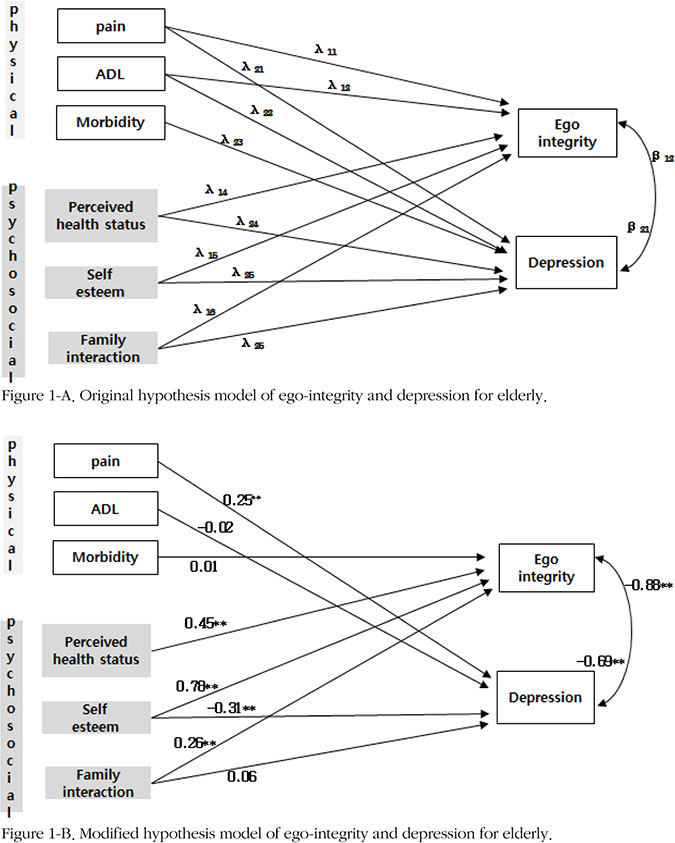1Department of Nursing, Kongju National University, Gongju, Korea.
2Department of Nursing, Inha University, Incheon, Korea.
© 2015 Korean Society of Adult Nursing


K-ADL=Korean activities of daily living.
RMSEA=root mean square error of approximation; NFI=normed fit index; NNFI=non-normed fit index; NNFI=non-normed fit index; GFI=goodness of fit index; AGFI=adjusted GFI; CN=critical N.
SMC=Squared multiple correlation; †T≥1.64, p≤.05; ‡T≥1.96, p≤.01.
K-ADL=Korean activities of daily living.
RMSEA=root mean square error of approximation; NFI=normed fit index; NNFI=non-normed fit index; NNFI=non-normed fit index; GFI=goodness of fit index; AGFI=adjusted GFI; CN=critical N.
SMC=Squared multiple correlation; †T≥1.64, p≤.05; ‡T≥1.96, p≤.01.